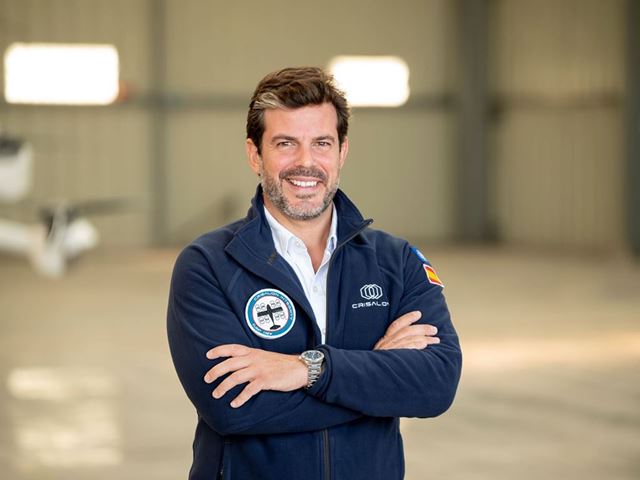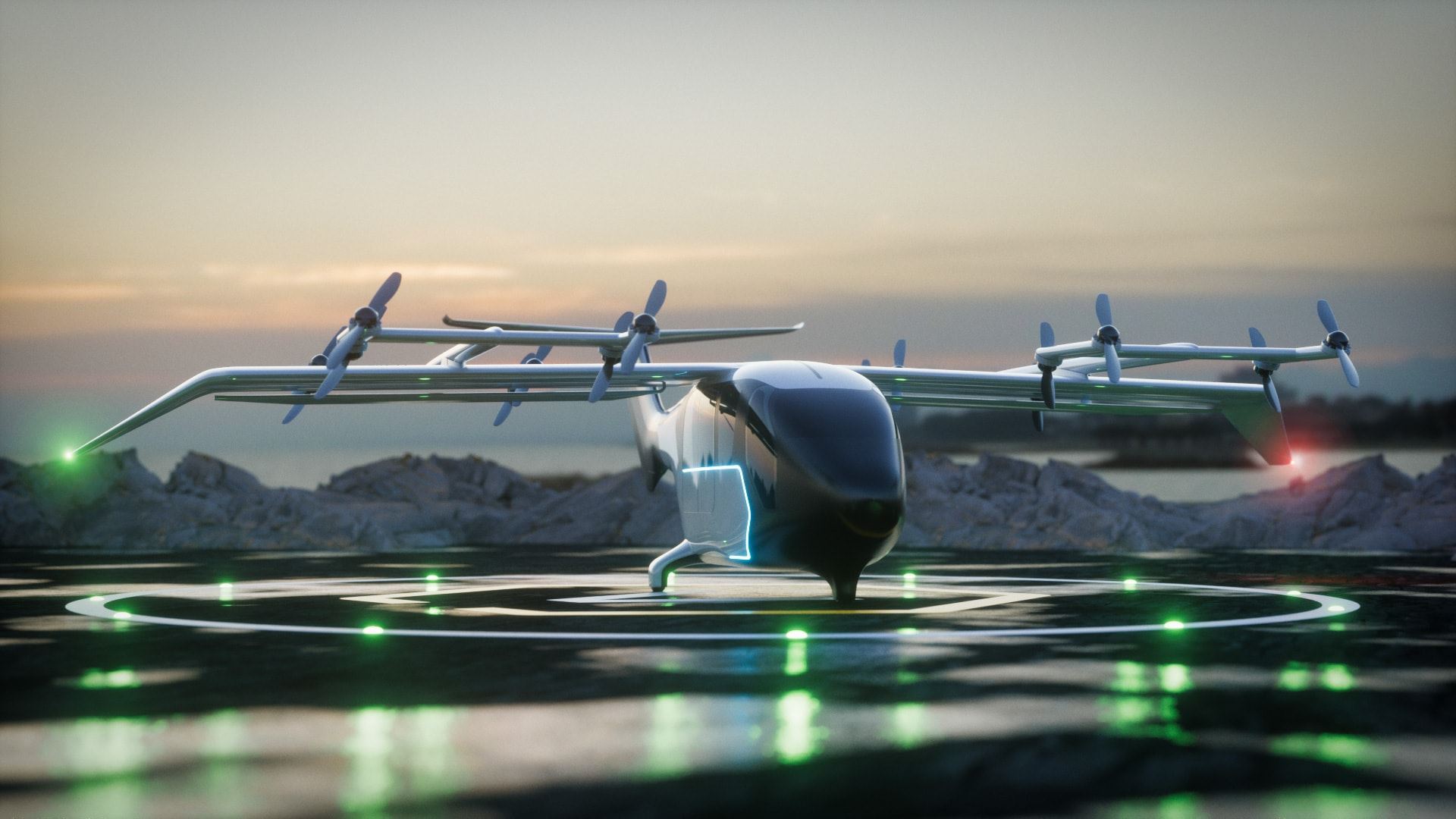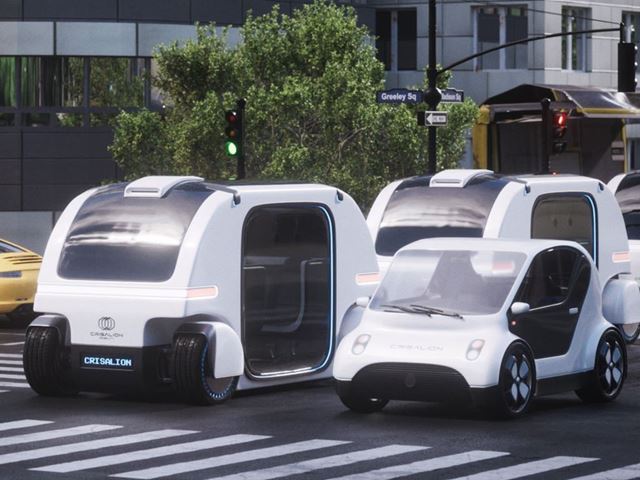
- Latest: Welcome to Auto Futures - Mobility News, Features, Exclusives and More...
- Latest: Subaru Europe Unveils the Brand's First All-Electric Compact SUV
- Latest: Lucid, Nuro & Uber Partner on Next-Generation Autonomous Robotaxi Service
- Latest: GM & Redwood Materials to Repurpose EV Batteries for Energy Storage
- Latest: Stellantis Discontinues Hydrogen Fuel Cell Technology Development Program
- Latest: Paving the way for an Electrified Future - L-Charge CEO
Revolutionising Electric Mobility in the air and on the Ground - Crisalion Mobility's CEO Carlos Poveda
Adrian Smith
- Jan 04 2024

Spain's Crisalion Mobility is developing electric mobility solutions using proprietary technologies for use in the air as well as on the ground. Launched in 2019, it is among the world’s first companies to successfully carry out real flight tests of an eVTOL aircraft.
"What is clear is that the way we move today will not be the way our children will use, just as the way we move today is different from that of previous generations," Crisalion Mobility's CEO, Carlos Poveda, tells Auto Futures.
INTEGRITY is name of the company's eVTOL aircraft. It is designed to accommodate up to 5 passengers and a pilot. It has a range of 100km, a cruising speed of 180km/h and a top speed of approximately 216km/h.
Being electric, it is much quieter than conventional helicopters, generating just 60 decibels.
"The INTEGRITY will be powered by lithium batteries. Because electric battery technology is one of the fastest evolving these days, we cannot guarantee which technology will power our future systems, but they will unquestionably be the safest and have the best and highest energy storage and power delivery capacities," says Poveda.
The aircraft features FlyFree, a patented propulsion technology capable of controlling the aircraft's movements in all directions.
It treats each set of motors independently, allowing the system to make any corrections independently whilst achieving maximum cabin and passenger stability. It allows the eVTOL to carry out complex manoeuvres, even in very windy conditions.
"There is no other technology quite like FlyFree. The FlyFree system sets us apart in terms of efficiency, manoeuvrability, and safety, as it makes the movements of the cabin independent from the power unit."
Crisalion's goal with the INTEGRITY is to have the prototype flying by 2028, and bring it to market with the certifications completed by 2030.

"The Next Paradigm Shift In Urban Ground Mobility"
Crisalion has also developed a fleet management technology, called Intellydrive, which combines remote operation and the coordinated driving of vehicle convoys managed from a control centre. It is already being used in a fleet of prototype vehicles with which it is conducting pilot tests.
"We see Intellydrive as the next paradigm shift in urban ground mobility and offer a much faster time-to-market and regulatory implementation than autonomous driving. In addition, the optimisation and flexibility of our service translates into reduced costs. By avoiding travel, we also ensure optimal working conditions for the teleoperator," explains Poveda.
Remote driving and on-board systems enable safer operation for drivers, vehicles and cargo.
"It reduces the time that vehicles are stationary, which is the time of greatest vulnerability. The number of operators needed to provide the mobility services required by users within the hotel complex or the theme park or venue in question is minimised. Thanks to the optimisation of use, there will be potential reductions in waiting times for users and greater intimacy in transfers."
This technology is designed to increase profitability and flexibility in the operation of vehicle fleets, in addition to providing the operator with a guaranteed immersive driving experience.
"Crisalion Mobility has the technology to respond to several current challenges in the sphere of urban mobility based on a remote operation system and the capacity to create road convoys with self-driving follower vehicles equipped with perception and decision-making systems that afford them the necessary functionalities," he adds.

A World Of Shared Transport
Finally, we asked Poveda for his thoughts on what urban mobility will look like by the end of the decade.
"There is no need to wait for 2030, society has already started to think and ask for changes in mobility. Why? Because we currently have very congested cities with traffic and what we citizens are looking for is to invest our time in productive things, not in being in traffic jams without being able to do anything productive," he says.
"We think of a world that promotes shared transport, reduces the use of private vehicles, and collaborates in the decongestion of urban environments. To achieve this, we must make progress in achieving the goals of decarbonisation of society and develop a new low-impact, connected, efficient, safe and inclusive mobility industry, with talent and disruptive technology."
"We are here to advance solutions and lead the new social revolution, which, I am sure, will be centered on mobility," concludes Poveda.
Popular Categories
